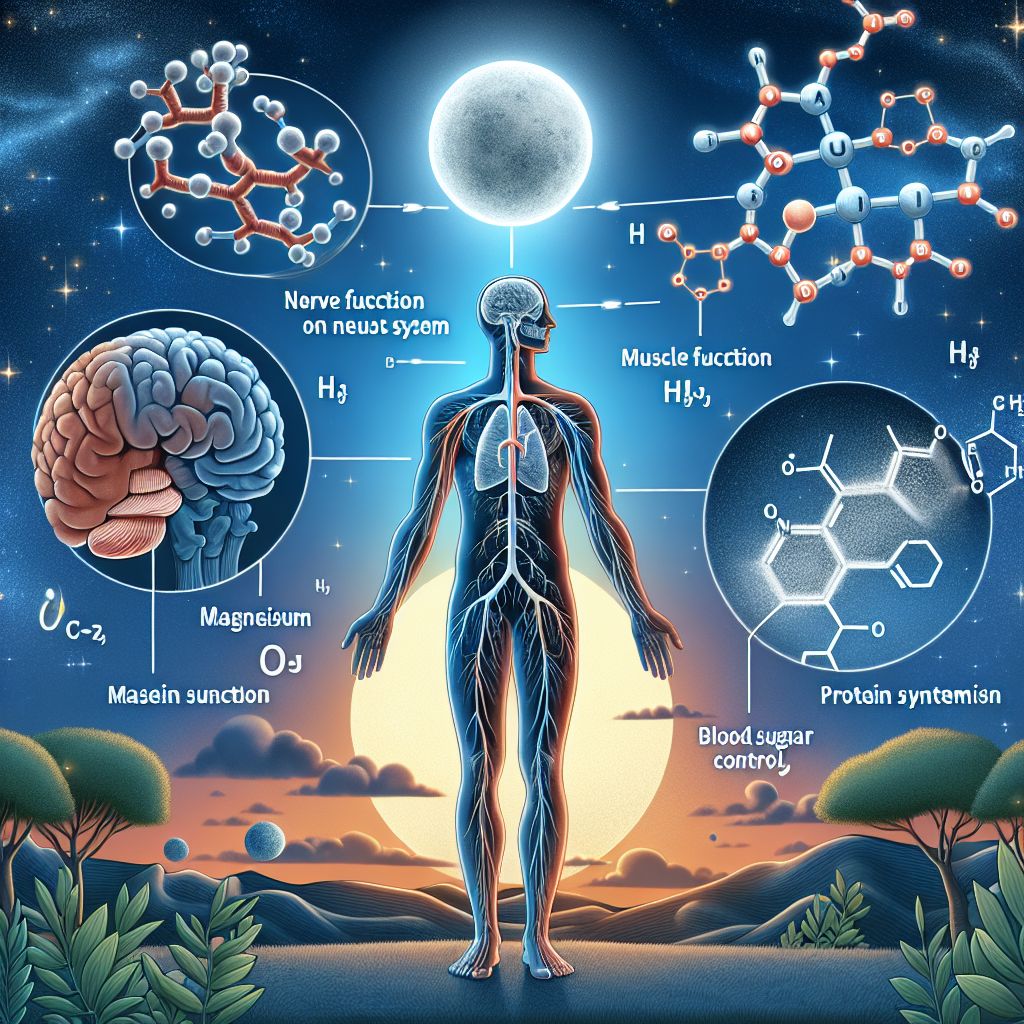Key Takeaways
Magnesium helps relax the mind and body, promoting better sleep.
Turmeric has anti-inflammatory properties that can reduce stress and improve sleep quality.
Combining magnesium and turmeric can provide synergistic effects for better sleep.
Magnesium glycinate is highly absorbable and effective for sleep improvement.
Turmeric can be consumed as a supplement or added to meals for its sleep-promoting benefits.
Comparing Magnesium and Turmeric for Insomnia
Here’s a comparison table of magnesium and turmeric for insomnia:
| Feature | Magnesium | Turmeric |
|---|---|---|
| Effectiveness for insomnia | Generally effective | Limited evidence of effectiveness |
| Mechanism of action | Regulates sleep-wake cycle, cofactor for melatonin production | Potential anti-inflammatory and antioxidant effects |
| Forms | Various (e.g., glycinate, gloconate, citrate) | Usually as curcumin supplement |
| Additional benefits | Muscle relaxation, anxiety reduction, heart health support | Anti-inflammatory, potential cognitive benefits |
| Research support | Multiple studies showing positive effects on sleep | Limited studies specific to sleep, inconsistent results |
| Recommended for | General sleep improvement, anxiety-related insomnia | Not specifically recommended for insomnia |
| Side effects | Generally well-tolerated, may cause digestive issues in high doses | Generally well-tolerated, may cause digestive issues |
| Natural sources | Green leafy vegetables, nuts, seeds | Turmeric root, curry powder |
| Interaction with sleep cycle | Directly involved in regulating sleep hormones | Indirect effects through reducing inflammation |
| Dosage for sleep | Varies, typically 200-400mg before bed | Not well established for sleep purposes |
Note: The effectiveness of turmeric for insomnia is not well-established based on the provided search results. The study mentioned found no significant effect of curcumin supplementation on insomnia in young women with premenstrual syndrome and dysmenorrhea[3]. Magnesium, on the other hand, has more evidence supporting its use for sleep improvement[4].
Citations:
[1] https://www.performancelab.com/blogs/sleep/turmeric-and-sleep
[2] https://blog.cytoplan.co.uk/full-moon-insomnia-and-magnesium/
[3] https://www.ncbi.nlm.nih.gov/pmc/articles/PMC10719725/
[4] https://myacare.com/blog/magnesium-glycinate-benefits-side-effects-social-media-hype-and-more
[5] https://www.healthline.com/health/food-nutrition/warm-milk-to-sleep
[6] https://www.medicalnewstoday.com/articles/315372
[7] https://www.medicinenet.com/benefits_of_taking_magnesium_glycinate/article.htm
[8] https://www.verywellhealth.com/best-magnesium-supplements-8579258
How Magnesium and Turmeric Work for Insomnia
Howver, depending on the cause of insomnia, when it comes to tackling insomnia naturally, magnesium and turmeric are two powerful allies. These remedies work differently yet complement each other to improve sleep quality. Before you decide which is best for you, let’s explore how each of these works.
Properties of Magnesium
Magnesium is a mineral essential for various bodily functions, including muscle and nerve function, blood sugar control, and protein synthesis. Most importantly, it helps your mind and body relax, preparing you for a good night’s sleep.
Magnesium is known to activate the parasympathetic nervous system, which is responsible for helping you feel calm and relaxed. Studies have shown that higher magnesium levels can help induce deeper, more consistent sleep. For more information on how to sleep better with magnesium, check out our detailed guide here.

Properties of Turmeric
Turmeric is a bright yellow spice often used in cooking, but it’s also renowned for its medicinal properties. The active ingredient in turmeric is curcumin, which has potent anti-inflammatory and antioxidant effects. These properties make turmeric a valuable tool for managing stress and promoting relaxation, creating a more favorable environment for restful sleep.
Animal studies suggest that turmeric can increase the non-rapid eye movement (NREM) phase of the sleep cycle, leading to better sleep quality.
How These Remedies Promote Better Sleep
Both magnesium and turmeric offer unique benefits for sleep, but they can also work together to provide even better results. Magnesium helps to calm the nervous system and relax muscles, making it easier to fall asleep. On the other hand, turmeric’s anti-inflammatory properties can reduce stress and create a more conducive environment for sleep.
Combining these two remedies can provide a synergistic effect, enhancing each other’s benefits. For example, mixing magnesium with tart cherry juice can increase support for melatonin production and muscle relaxation, further promoting sleep. Additionally, understanding the biorhythm sleep cycle relationship can help optimize these benefits.
Benefits of Using Magnesium for Insomnia
Calmness and Relaxation
One of the primary benefits of magnesium is its ability to promote calmness and relaxation. By activating the parasympathetic nervous system, magnesium helps reduce anxiety and stress, making it easier to unwind before bed. For more insights on achieving optimal rest, you can explore the importance of sleep cycles.
Improved Sleep Quality
Magnesium has been shown to improve sleep quality by increasing the time spent in deep sleep phases. This results in more restorative sleep, leaving you feeling refreshed and energized in the morning. For more information on how to optimize your sleep cycles, check out optimal sleep cycles.
Reducing Sleep Latency
Sleep latency is the time it takes to fall asleep after going to bed. Magnesium can help reduce sleep latency by calming the nervous system and relaxing the muscles, making it easier to drift off to sleep quickly. For more tips on improving sleep, check out our article on effective solutions for better sleep.
Scientific Studies on Magnesium and Sleep
Scientific research has consistently highlighted the benefits of magnesium for improving sleep. One study conducted by the Biochemistry and Neurophysiology Unit at the University of Geneva found that higher levels of magnesium helped provide better, more consistent sleep. This is because magnesium acts as a calming nutrient, reducing nerve excitability and promoting relaxation.
Another study published in the Journal of Research in Medical Sciences demonstrated that magnesium supplementation could significantly improve insomnia symptoms in elderly individuals. Participants who took magnesium experienced better sleep quality, longer sleep duration, and reduced sleep latency compared to those who took a placebo.
How to Use Magnesium for Best Results
To get the most out of magnesium for sleep, it’s essential to choose the right form and dosage. Magnesium glycinate is often recommended because it is highly absorbable and gentle on the stomach. This form of magnesium is also known for its calming properties, making it an excellent choice for improving sleep.
Here are some tips for using magnesium effectively:
Take magnesium supplements about 30 minutes before bedtime to allow time for absorption and relaxation.
Start with a lower dose, such as 200-300 mg, and gradually increase if needed. Consult with a healthcare provider to determine the appropriate dosage for your needs.
Combine magnesium with other sleep-promoting practices, such as maintaining a consistent sleep schedule, creating a relaxing bedtime routine, and avoiding caffeine and electronics before bed.ombine magnesium with other sleep-promoting practices, such as maintaining a consistent sleep schedule, creating a relaxing bedtime routine, and avoiding caffeine and electronics before bed.
Benefits of Using Turmeric for Insomnia
Turmeric is another natural remedy that can help improve sleep quality. Its active ingredient, curcumin, has several properties that make it beneficial for promoting restful sleep.
Anti-inflammatory Properties
One of the primary benefits of turmeric is its potent anti-inflammatory effects. Inflammation can contribute to various health issues, including sleep disturbances. By reducing inflammation, turmeric helps create a more favorable environment for sleep.
Stress Reduction
Stress is a common cause of insomnia, and turmeric can help mitigate its effects. Curcumin has been shown to reduce stress hormones, such as cortisol, which can interfere with sleep. By lowering stress levels, turmeric makes it easier to relax and fall asleep.
For instance, a study published in the Journal of Affective Disorders found that curcumin supplementation significantly reduced symptoms of anxiety and depression, both of which can negatively impact sleep.
Promoting Relaxation and Sleep
Turmeric also promotes relaxation by increasing the production of neurotransmitters like serotonin and dopamine. These chemicals play a crucial role in regulating mood and sleep. Higher levels of serotonin and dopamine can help improve sleep quality and duration.
Moreover, turmeric’s ability to increase the non-rapid eye movement (NREM) phase of the sleep cycle can lead to more restorative sleep. This phase is essential for physical and mental recovery, making it crucial for overall health and well-being.
Scientific Studies on Turmeric and Sleep
Several studies have investigated the effects of turmeric on sleep. One notable study conducted on mice by the Biochemistry and Neurophysiology Unit at the University of Geneva found that turmeric increased the NREM phase of the sleep cycle. This led to better sleep quality and duration.
Another study published in the Journal of Psychopharmacology demonstrated that curcumin supplementation improved sleep quality and reduced sleep disturbances in individuals with anxiety and depression. These findings suggest that turmeric can be an effective natural remedy for improving sleep.
How to Use Turmeric for Best Results
To maximize the sleep-promoting benefits of turmeric, it’s essential to use it correctly. Here are some tips for incorporating turmeric into your routine:
Take turmeric supplements about 30-60 minutes before bedtime to allow time for absorption and relaxation.
Choose high-quality turmeric supplements that contain black pepper extract (piperine) to enhance absorption.
Consider drinking turmeric tea before bed for a soothing and relaxing beverage.
Add turmeric to your diet by incorporating it into meals, such as soups, stews, and smoothies.

Comparing Magnesium and Turmeric for Insomnia
When it comes to natural remedies for insomnia, both magnesium and turmeric offer unique benefits. While they work differently, they can be incredibly effective when used together. Let’s compare these two remedies to help you decide which might be best for you. For more insights on sleep troubles, check out how men struggle more with insomnia as they age.
There is more research to support magnesium as an aid for insomnia, but as you’ll see from the brief summary below, if inflammation is causing insomnia, then turmeric may be beneficial.
Benefits Comparison
Magnesium and turmeric both offer distinct advantages for improving sleep. Magnesium primarily works by calming the nervous system and relaxing muscles, making it easier to fall asleep and stay asleep. On the other hand, turmeric’s anti-inflammatory and antioxidant properties help reduce stress and create a more conducive environment for sleep.
Here’s a quick summary of their benefits:
Magnesium | Turmeric |
|---|---|
Calms the nervous system | Reduces inflammation |
Relaxes muscles | Reduces stress hormones |
Improves sleep quality | Increases NREM sleep phase |
Reduces sleep latency | Promotes relaxation |
Conclusion: Choosing the Best Remedy for You
Choosing the best remedy for insomnia ultimately depends on your individual needs and preferences. If you struggle with muscle tension and find it difficult to relax before bed, magnesium might be the better option. On the other hand, if stress and inflammation are significant factors affecting your sleep, turmeric could be more beneficial.
However, combining both remedies can provide a comprehensive approach to improving sleep quality. By addressing both physical and mental factors contributing to insomnia, you can create a more conducive environment for restful sleep. Always consult with a healthcare provider before starting any new supplement regimen to ensure it is safe and appropriate for your needs.
Frequently Asked Questions (FAQ)
Can I take magnesium and turmeric together?
Yes, you can take magnesium and turmeric together. Combining these remedies can provide synergistic effects, enhancing each other’s benefits and promoting better sleep. However, it’s essential to consult with a healthcare provider before starting any new supplement regimen to ensure it is safe and appropriate for your needs.
Magnesium helps relax the body and mind, while turmeric reduces inflammation and stress, creating a more conducive environment for restful sleep. This combination can be particularly effective for individuals who struggle with both physical and mental factors contributing to their insomnia.
For example, you can take a magnesium supplement about 30 minutes before bedtime and incorporate turmeric into your evening routine by drinking turmeric tea or taking a turmeric supplement. This approach allows you to benefit from both remedies’ unique properties, enhancing your overall sleep quality.
Any Potential Side Effects?
While both magnesium and turmeric are generally safe, they can have potential side effects, especially when taken in large doses. Magnesium can cause digestive issues like diarrhea, nausea, and stomach cramps. It’s essential to start with a lower dose and gradually increase it to avoid these side effects.
Turmeric, on the other hand, can interact with certain medications, such as blood thinners and diabetes medications. It may also cause digestive issues like stomach upset and acid reflux if taken in large amounts.
Always consult with a healthcare provider before starting any new supplement regimen.
What is the best form of magnesium for sleep?
Magnesium glycinate is often recommended for sleep because it is highly absorbable and gentle on the stomach. This form of magnesium is also known for its calming properties, making it an excellent choice for improving sleep quality. For more tips on choosing a magnesium supplement, check out comparison of different forms of magnesium for sleep.
How can I incorporate turmeric into my diet?
You can incorporate turmeric into your diet by adding it to meals, such as soups, stews, and smoothies. Turmeric tea is another popular option for consuming this beneficial spice. Additionally, turmeric supplements are available for those who prefer a more convenient option. Look for supplements that contain black pepper extract (piperine) to enhance absorption.






Leave a Reply